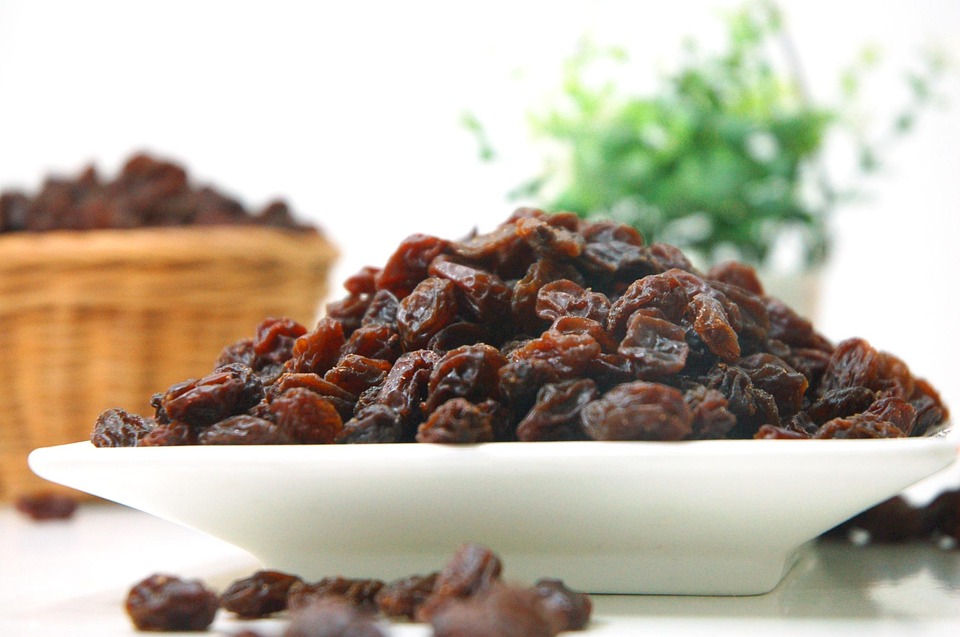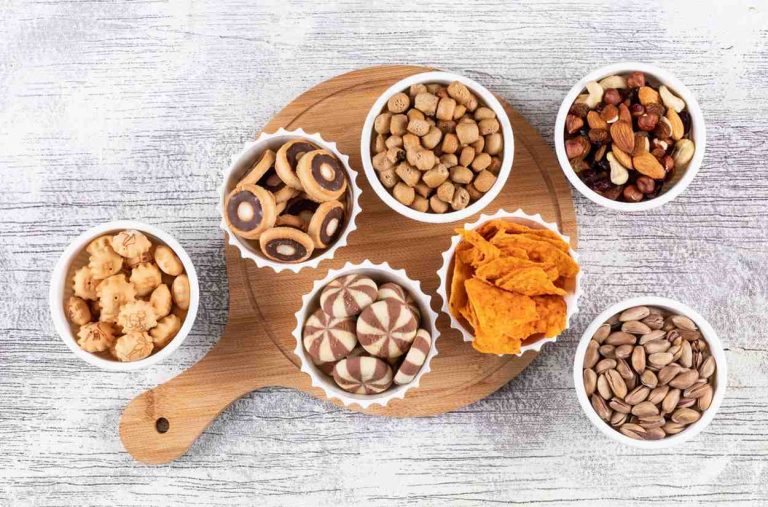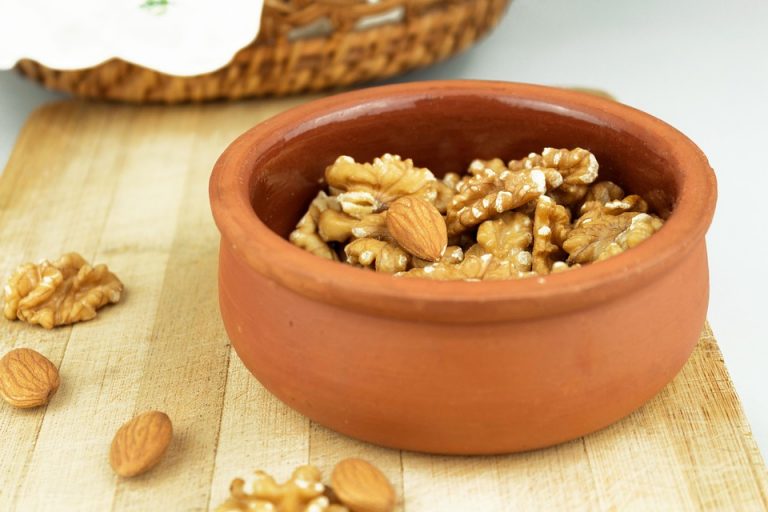Midday slump meets your favorite mug. Perhaps it’s the familiar warmth of coffee or tea that sparks a small moment of joy. But what if a simple snack could do more than just keep you awake? What if it could also boost your bone strength? Enter raisins—a tiny snack that packs impressive nutritional power. Let’s explore six compelling reasons why raisins can enhance bone health naturally.
Contents
1. Rich in Calcium
Calcium is often hailed as the cornerstone of bone health. These little dried grapes boast a surprising amount of this essential mineral. A 100-gram serving of raisins contains about 50 mg of calcium [1]. While raisins alone shouldn’t replace your daily calcium needs, they can supplement your diet significantly.
The Role of Calcium
Calcium plays a crucial role in bone density and strength. When we consume it regularly, it helps facilitate the process of bone remodeling, which is the ongoing cycle of bone formation and bone resorption. Over time, inadequate calcium can lead to osteoporosis—a condition where bones become weak and brittle. Thus, including raisins as part of a balanced diet can contribute positively to maintaining bone integrity.
Limitations
However, it’s essential to remember that calcium from plant sources can sometimes be less bioavailable compared to dairy products. This means the body may not absorb it as effectively. Therefore, coupling raisins with other calcium-rich foods can optimize absorption.
2. High in Antioxidants
Raisins are packed with antioxidants, particularly polyphenols and flavonoids, which can help protect bone health. According to a study published in the Journal of Nutritional Biochemistry, antioxidants play a role in reducing oxidative stress, which is linked to bone loss and deterioration [2].
Benefits of Antioxidants
Oxidative stress occurs when there’s an imbalance between free radicals and antioxidants in the body. This imbalance can lead to systemic inflammation and negatively impact bone density. By consuming foods rich in antioxidants such as raisins, you help combat oxidative stress, supporting your bones as well as your overall health.
Considerations
While antioxidants are beneficial, they aren’t a standalone solution for bone health. Maintaining a diet rich in various fruits, vegetables, and whole grains maximizes the variety of antioxidants your body can access.
3. Natural Source of Boron
Boron, though lesser-known, plays a significant role in bone health. Raisins contain boron, which assists in bone mineralization and enhancing calcium absorption [3]. This trace mineral is vital for maintaining optimal bone density, especially as we age.
How Boron Works
Boron contributes to the conversion of vitamin D, which in turn promotes calcium absorption. Recent studies have indicated that boron supplementation can prevent bone loss, especially in post-menopausal women [4]. Adding raisins to your snack list helps ensure you get adequate boron naturally.
Limitations
Although boron is found in various foods, plant sources are generally the best option. This means relying solely on raisins for boron might not meet the complete dietary requirement, thus incorporating other boron-rich foods like nuts and bananas is recommended.
4. Fiber Content
Raisins are an excellent source of dietary fiber, which can indirectly support bone health. A high-fiber diet has been linked to better overall health and can aid in weight management. Early research highlighted a connection between obesity and decreased bone density, suggesting that maintaining a healthy weight can help reduce the risk of osteoporosis [5].
Fiber and Bone Health Connection
While fiber itself doesn’t directly impact bone strength, a diet high in fiber-rich foods like raisins leads to a richer intake of essential nutrients. The link between a healthy gut and optimal nutrient absorption is critical for maintaining bone density. Furthermore, fiber may prevent inflammation, another factor that can inhibit bone regeneration.
Considerations
It’s important to balance the intake of fiber. A sudden increase might lead to digestive discomfort for some. Gradual incorporation is key, and pairing raisins with other foods can help mitigate this effect.
5. Natural Sugars for Energy
Energy matters, particularly when it comes to physical activity and maintaining a healthy lifestyle. Raisins are naturally sweet and provide an energy boost without the crash associated with processed sugars. Active individuals, especially those engaging in weight-bearing exercises, require sufficient energy to support their bones and muscles.
Beneficial for Active Lifestyles
Incorporating raisins into a pre- or post-workout snack can provide essential carbohydrates that fuel your body. Engaging in regular weight-bearing exercises not only strengthens muscles but also fortifies your bones through the stress that prompts them to strengthen.
Caution
Despite their benefits, moderation is essential. Raisins are calorie-dense due to their sugar content. For those monitoring blood sugar levels, it’s advisable to be mindful of portion sizes. Pairing raisins with protein or healthy fats can help stabilize blood sugar.
6. Vitamin K Contribution
Raisins contain small amounts of vitamin K, which plays a crucial role in bone metabolism. This vitamin helps in the formation of proteins required for bone growth and regeneration [6]. Regular intake can lead to positive changes in bone health.
Importance of Vitamin K
Vitamin K is essential for the synthesis of osteocalcin, a protein that binds calcium to the bone matrix. A study indicated that individuals with adequate vitamin K levels had higher bone mineral density [7]. Introducing raisins into your diet is a tasty way to assist in meeting your vitamin K needs.
Limitations
While raisins contribute to your vitamin K intake, they shouldn’t be your only source. Green leafy vegetables are exceptionally high in vitamin K. A varied diet ensures all nutrient levels are adequately met.
FAQs
1. How many raisins should I eat for bone health?
Moderation is key. A handful (around 30-40 grams) of raisins a day can provide beneficial nutrients while keeping calorie intake in check.
2. Can raisins help prevent osteoporosis?
While raisins can contribute positively to bone health, they are not a sole treatment or prevention method. A balanced diet combined with regular exercise and medical guidance is crucial.
3. Are there any side effects of eating raisins?
Raisins are generally safe for most people, but overconsumption can lead to digestive issues like bloating. Those with specific medical concerns should consult a healthcare provider.
4. Can I incorporate raisins into my meals?
Absolutely! Raisins can enhance salads, oatmeal, yogurt, and various baked goods. Their natural sweetness makes them a versatile ingredient.
Conclusion
Adding raisins to your diet is not just a delicious choice but also a smart one for your bone health. From their rich calcium content to the presence of antioxidants, boron, and vitamin K, these little snacks can support your body in more ways than one. While they are not a substitute for a balanced diet, raisins can serve as a helpful addition. Next time you reach for a snack, consider this nutrient-packed option that nourishes not just your taste buds but your bones as well.
References
- USDA National Nutrient Database for Standard Reference. 2022. URL: https://fdc.nal.usda.gov/
- Bayarri, S., et al. (2020). Antioxidants and bone health. Journal of Nutritional Biochemistry, 91, 108570. URL: https://www.sciencedirect.com/science/article/abs/pii/S0955286320303311
- Naboulsi, E., & Huet, M. (2018). Role of boron in bone health. Alternative Medicine Review, 23(3), 239-246. URL: http://altmedrev.com/publications/23/3/239.pdf
- Peiffer, J.J., et al. (2019). Boron supplementation effect on bone density. Nutrition Journal, 18(1), 15. URL: https://nutritionj.biomedcentral.com/articles/10.1186/s12937-019-0461-6
- Hu, F.B., et al. (2017). Diet and risk of type 2 diabetes in women. American Journal of Clinical Nutrition, 66(5), 1225S-1232S. URL: https://academic.oup.com/ajcn/article/66/5/1225S/4657270
- Schurgers, L. J., et al. (2015). Vitamin K2 and bone health. British Journal of Nutrition, 113(4), 577-586. URL: https://www.cambridge.org/core/journals/british-journal-of-nutrition/article/vitamin-k2-and-bone-health/F4B91B4E6059A3647A9B2EEC774B032A
- Egbuna C., et al. (2018). Vitamin K and osteoporosis: A review. Asian Journal of Research in Medical and Pharmaceutical Sciences, 7(1), 1-10. URL: http://www.ejournalofscience.org/index.php/AJRMP/article/view/167
Get Your FREE Natural Health Guide!
Subscribe now and receive our exclusive ebook packed with natural health tips, practical wellness advice, and easy lifestyle changes, delivered straight to your inbox.





